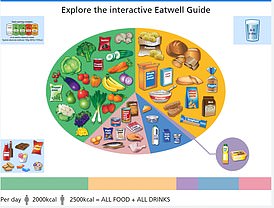No biscuits before bed! Snacking after 9pm may be worse for your health, find scientists
Bedtime cookies may not be on the menu, as one study suggests that snacking after 9 p.m. may be worse for your health.
The finding comes from 854 people in the UK who were asked to record every snack they ate over two to four days.
Then their blood sugar levels, linked to the risk of type 2 diabetes, and blood fat levels, linked to the risk of heart attacks and strokes, were analyzed.
People who reported snacking after 9 p.m. had worse measurements than those who didn’t snack at all after that time.
Dr. Sarah Berry, lead author of the study from King’s College London, said: ‘We are a nation of snackers, and these results show that people who snack after 9pm are more likely to choose unhealthy snacks than those who snack earlier in the day.
The study, presented at NUTRITION 2023, the annual meeting of the American Society for Nutrition, found that 95 percent of British volunteers ate at least one snack per day. But the researchers found a significant difference in blood sugar and blood fat between the 32 percent of people who ate after 9 p.m. and the 68 percent who didn’t eat after 9 p.m.
“They may be distractedly chewing chocolate and chips in front of the television right now.
“But there’s also some evidence that snacking after 9 p.m. is out of sync with your body clock, which can affect your metabolism.”
“It also doesn’t give your body much fasting to recover after eating.”
The study, presented at NUTRITION 2023, the annual meeting of the American Society for Nutrition, found that 95 percent of British volunteers ate at least one snack per day.
The average number of snacks per day was 2.3.
Snacking was most popular later in the day: 39 percent of people get at least 50 percent of their calories from snacking between noon and 6 p.m., and 31 percent get at least 50 percent of their calories from evening snacks, after 6 p.m.
Only 13 percent of people were morning snackers, consuming at least 50 percent of their calories before noon, while 17 percent were “grazers” who snacked throughout the day without a particular time peak.
The researchers found a significant difference in blood sugar and blood fat between the 32 percent of people who ate after 9 p.m. and the 68 percent who didn’t eat at all after 9 p.m.
To find out how late-night snackers might differ from other people, the researchers gave everyone a high-fat, high-carb muffin and then tested their blood.
The normal spike in blood sugar and blood fats, called triglycerides, after eating was higher in people who reported eating at least one snack after 9 p.m., compared with those who didn’t.
These people’s overall blood sugar levels, not just after eating, were also higher.
High blood sugar increases the risk of type 2 diabetes, and high triglyceride levels suggest that someone may not be processing fat properly or that their liver is releasing too much fat, which could increase the risk of cardiovascular events such as heart attack or stroke.
Late snacking therefore appears to be linked to greater health risk, even after the researchers took into account factors such as people’s weight, physical activity and how unhealthy their meals were overall.
Interestingly, however, people could snack as often as they wanted during the day if they ate good quality snacks, without affecting their health.
Researchers asked people to select and weigh every snack they ate, down to the brand name of the cookie, and used a healthy eating score to rank the snacks.
People who snacked frequently, when they ate healthier snacks, did not have higher blood sugar and blood fats than people who ate infrequent snacks.
The measurements used in the study, which has not yet been published or fully reviewed by other scientists, are now commercially available to people who want to track their diet and its impact on their metabolism through the ZOE app, which was set up as a private company by a team that includes researchers from King’s College London.
Dr. Berry, lead scientist at ZOE: ‘Although snacks make up about a fifth of people’s daily calories, we don’t know much about them.
‘Very interesting is that it seems fine to snack throughout the day, if you opt for healthier choices such as fruit, nuts and yogurt.
‘Choosing healthy snacks is a very simple way to improve your eating pattern.’

